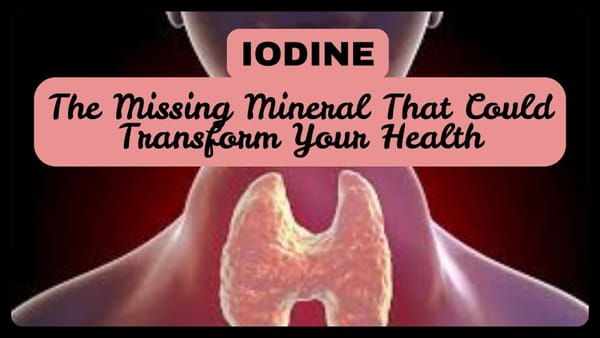Bloating Demystified: Causes, Prevention and Treatment
Discover the reasons behind bloating, how to prevent it, and the best treatment options available. Your ultimate guide to bloating demystified.

A bloated stomach feels tight, full and often painful. Bloating is that uncomfortable, swollen feeling in your belly - a common problem for many adults. Up to 30% of people deal with this uncomfortable digestive issue. I know how much of a problem bloating can be, and I hope you find this article helpful.
The good news is that you can take control of this problem. Understanding what can cause bloating, and trying different prevention and treatment strategies, you can find relief.
How Common is Bloating?
Bloating is extremely widespread. Studies show that up to 30% of adults regularly experience bloating. Women tend to have this problem more often than men. Hormonal changes, differences in gut bacteria, and higher rates of digestive disorders in women all likely play a role.
Bloating can happen to people of all ages, but it may become more common as we age. Postmenopausal women, in particular, tend to struggle with it more.
What Causes Bloating?
Many different factors can lead to bloating. Understanding the specific triggers in your case is key to finding relief.
Dietary Factors:
- High-Fibre Foods: While fibre is healthy, eating too many high-fibre foods like beans, lentils, and broccoli can cause gas and bloating, especially if your body isn't used to them.
- Fructose: This natural sugar, found in fruits, honey, and high-fructose corn syrup, can be hard for some people to digest, leading to bloating.
- Lactose: Lactose intolerance, where your body can't properly break down the sugar in dairy products, is a common cause of bloating.
- Artificial Sweeteners: Sugar alcohols like sorbitol and xylitol, often used in sugar-free gum and candies, can ferment in the gut and cause gas and bloating.
Medical Conditions:
- Irritable Bowel Syndrome (IBS): This chronic condition, with symptoms like abdominal pain and changes in bowel habits, affects up to 15% of the global population and often includes bloating.
- Inflammatory Bowel Diseases (IBD): Conditions like Crohn's disease and ulcerative colitis can cause inflammation in the digestive tract, leading to bloating.
- Gastroparesis: This disorder slows down the emptying of the stomach, which can result in bloating, nausea, and feeling full.
- Hormonal Imbalances: Fluctuations in estrogen and progesterone levels, especially around menstrual cycles and menopause, can contribute to bloating in women.
Lifestyle Factors:
- Stress: High stress can disrupt the balance of gut bacteria, leading to gas, bloating, and other digestive issues.
- Lack of Exercise: Not being physically active can slow digestion and contribute to bloating.
- Poor Posture: Slouching or hunching over can put pressure on the abdomen and make digestion more difficult.
Identifying your specific bloating triggers is the first step in finding relief. Pay attention to your diet, health history, and daily habits to pinpoint the causes.

How to Treat Bloating?
There are many effective strategies to prevent and relieve bloating. From changing your diet and lifestyle to seeking medical treating, the key is find the right solutions for your needs.
Dietary Modifications:
- Avoid Trigger Foods: If certain foods seem to cause your bloating, try eliminating them from your diet for a while to see if it helps. Common culprits include high-fibre foods, dairy products and artificial sweeteners.
- Drink More Water: Staying hydrated can aid digestion and prevent constipation, which can contribute to bloating.
- Eat Probiotic Foods: Foods like yoghurt, kefir, and fermented veggies can help restore the balance of gut bacteria and reduce bloating.
Lifestyle Changes:
- Exercise Regularly: Physical activity like walking, swimming, or yoga can stimulate digestion and relieve bloating.
- Manage Stress: Practices like meditation, deep breathing, and gentle stretching can calm the gut and prevent stress-related bloating.
- Improve Posture: Sitting and standing up straight can take pressure off your abdomen and aid digestion.
Medical Treatments:
- Medications: Over-the-counter or prescription drugs like simethicone, alpha-galactosidase, or antispasmodics can sometimes help reduce gas and bloating.
- Therapy: For conditions like IBS or IBD, working with a gastroenterologist or dietitian can identify the root causes and develop a treatment plan.
- Surgery: In rare, severe cases, surgery may be an option to address the underlying cause of chronic, debilitating bloating.
Be patient and keep trying different approaches. Try and experiment to find the right combination of solutions that work for you. With persistence, you can regain control over your bloating and enjoy a more comfortable, confident life.

FAQs
Can bloating be a sign of a serious condition?
Occasional bloating is often harmless, even if it's uncomfortable. However, if bloating is accompanied by severe pain, persistent constipation or diarrhoea, unexplained weight loss, or blood in the stool, it could be a sign of a more serious condition like IBS, IBD, or even cancer. If you have persistent or worsening bloating, see a healthcare provider to rule out any serious medical causes.
How can I get quick relief for bloating?
If you need fast relief for acute bloating, try these strategies:
- Take an over-the-counter gas relief medication.
- Drink warm peppermint or ginger tea, which can help relax the digestive tract.
- Gently massage your abdomen in a clockwise direction to help release trapped gas.
- Try to pass gas or have a bowel movement to release the built-up pressure.
- Avoid carbonated beverages, which can make bloating worse.
- Practice relaxation techniques like deep breathing or gentle stretching.
Are there any home remedies for bloating?
Yes, the following natural remedies may help provide relief:
- Drink plenty of water and herbal teas to stay hydrated.
- Eat probiotic-rich foods like yohgurt, kefir, or fermented vegetables like sauerkraut and kimchi.
- Try an over-the-counter digestive enzyme supplement.
- Apply a warm heating pad or take a warm bath to soothe discomfort.
- Engage in light exercise like walking or gentle yoga.
- Identify and avoid foods that seem to worsen your bloating.
- Use relaxation techniques to manage stress.
Always check with your healthcare provider before trying new home remedies, especially if you have an underlying medical condition.
If you're dealing with persistent or worsening bloating, it is good to consult a healthcare professional. They can help rule out serious medical conditions and develop a comprehensive treatment plan tailored to your specific needs. You can overcome bloating and enjoy a more comfortable, confident life.






